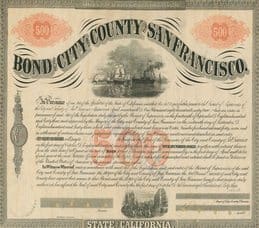 (March 2012) A five year corporate bond with a rating between A and AAA will yield in neighborhood of 1.80 to 2.4%. As you can see from the table below (which shows recent average rates from the six largest states for General Obligation Bonds) Municipal Bonds are paying significantly lower interest. The first Yield Column shows municipal bond yields without adjusting for tax benefits. The second column shows the tax benefits for a person living in the state and for an out of stater (assumes the highest tax bracket).
(March 2012) A five year corporate bond with a rating between A and AAA will yield in neighborhood of 1.80 to 2.4%. As you can see from the table below (which shows recent average rates from the six largest states for General Obligation Bonds) Municipal Bonds are paying significantly lower interest. The first Yield Column shows municipal bond yields without adjusting for tax benefits. The second column shows the tax benefits for a person living in the state and for an out of stater (assumes the highest tax bracket).
| State* | State Credit Rating | Yield%* | Taxable Equivalent (Stare Resident/ Non-Resident) % |
| California | A- | 1.026 | 1.85 / 1.58 |
| Texas | AAA | 0.795 | 1.22/ 1.22 |
| New York | AA | 0.817 | 1.46 /1.26 |
| Florida | AAA | 1.240 | 1.91 /1.99 |
| Illinois | A | 1.874 | 3.12 /2.88 |
| Pennsylvania | AA+ | 1.100* | 1.78 /1.69 |
| Ohio | AA+ | 0.806 | 1.36 /1.24 |
Pre-tax yields with the exception of Pennsylvania were taken from MunicipalBonds.com
Yes, Municipal Bonds are overpriced when you compare them to corporate bonds but, may be correctly priced when compared to Treasuries.
- Municipal Bonds pay a lower interest rate than corporate bonds with an equivalent rating, after adjusting for taxes.
- The exception among large states are AAA rated Florida and single A Illinois, which pay more than the equivalent corporate bonds.
Based on data from Valubond, AAA rated municipal bonds yield 0.51%. Corporate bonds with the same rating and maturity yield around 1.86%. Adjusting for taxes (assuming a 35% federal tax and a 5% state tax), the tax equivalent yield of the municipal bond would be 0.85%. The difference is an incredible 1.0%
If you go down to AA rating, the difference narrows to 0.7%. Still extremely significant.
Why is the difference so large?
The argument that is usually made to explain this difference is that Municipal bonds are safer than corporate bonds with the same rating. The pivotal study done on this topic (which is now 5 Years old) studied default rates of bonds by rating from 1970 – 2007 Investment grade Municipal bonds had a default rate of 0.2% compared to 4.14% for Investment grade corporate bonds. This would certainly suggest that municipal bonds deserve a big premium to corporate bonds.
How do Municipal bonds compare the US Treasury bonds of the same maturity? The 5 year Treasury note yields 0.86. You will not pay state income tax on the yield. So to compare apples to apples, I am going to assume 5% state income tax. The adjusted yield is now 0.91%. A double AA rated municipal bond will average a 1.30% after tax yield. So, the municipal bond does yield more 0.4% more than treasury or about 33% more.
Municipal bonds provide a little more risk and little bit more returns than treasuries.
Click here to learn more about best forex brokers.
Trusted & Regulated Stock & CFD Brokers
What we like
- 0% Fees on Stocks
- 5000+ Stocks, ETFs and other Markets
- Accepts Paypal Deposits
Min Deposit
$200
Charge per Trade
Zero Commission on real stocks
64 traders signed up today
Visit Now67% of retail investor accounts lose money when trading CFDs with this provider. You should consider whether you can afford to take the high risk of losing your money.
Available Assets
- Total Number of Stocks & Shares5000+
- US Stocks
- German Stocks
- UK Stocks
- European
- ETF Stocks
- IPO
- Funds
- Bonds
- Options
- Futures
- CFDs
- Crypto
Charge per Trade
- FTSE 100 Zero Commission
- NASDAQ Zero Commission
- DAX Zero Commission
- Facebook Zero Commission
- Alphabet Zero Commission
- Tesla Zero Commission
- Apple Zero Commission
- Microsoft Zero Commission
Deposit Method
- Wire Transfer
- Credit Cards
- Bank Account
- Paypall
- Skrill
- Neteller
What we like
- Sign up today and get $5 free
- Fractals Available
- Paypal Available
Min Deposit
$0
Charge per Trade
$1 to $9 PCM
Visit Now
Investing in financial markets carries risk, you have the potential to lose your total investment.
Available Assets
- Total Number of Shares999
- US Stocks
- German Stocks
- UK Stocks
- European Stocks
- EFTs
- IPOs
- Funds
- Bonds
- Options
- Futures
- CFDs
- Crypto
Charge per Trade
- FTSE 100 $1 - $9 per month
- NASDAQ $1 - $9 per month
- DAX $1 - $9 per month
- Facebook $1 - $9 per month
- Alphabet $1 - $9 per month
- Telsa $1 - $9 per month
- Apple $1 - $9 per month
- Microsoft $1 - $9 per month
Deposit Method
- Wire Transfer
- Credit Cards
- Bank Account



